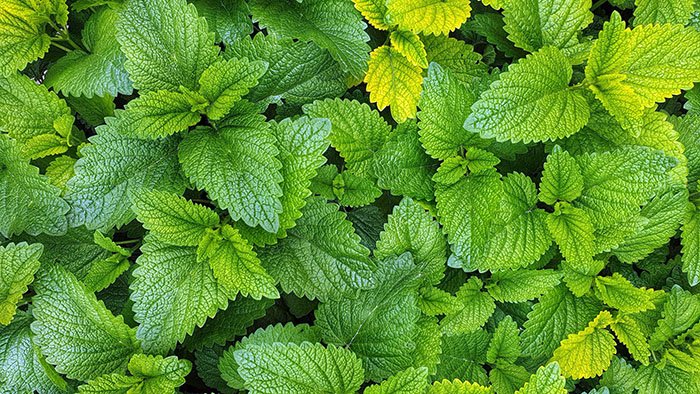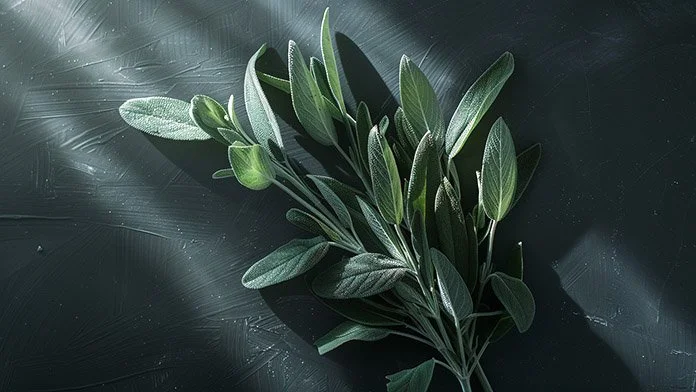Hydroponic Herbs: 20 Popular Options
Welcome to the world of hydroponic herbs, where traditional gardening meets modern innovation. Hydroponic greenhouse systems allow for the cultivation of herbs without soil. Instead, they employ nutrient-rich water solutions to feed plants. This method saves space, conserves water, and promises faster growth and greater yield.
Whether you're a seasoned gardener or a grocer looking to enhance your product range, hydroponic greens and herbs are fascinating. Understanding which herbs thrive hydroponically can transform your approach to gardening and retail. In this guide, we'll explore 20 popular herbs perfect for hydroponic cultivation. We'll detail their unique flavors, health benefits, and culinary uses.
20 Popular Hydroponic Herbs
Before diving into the specific herbs, let's understand their significance. Choosing hydroponics can complement your herb gardening or retail store with delicious flavors. Hydroponic systems offer a clean, efficient, and sustainable alternative to traditional soil-based cultivation. They reduce the need for water by up to 98% and eliminate soil-borne diseases.
By integrating hydroponic herbs into your offerings, you can cater to the eco-conscious consumer. You can also guarantee fresher, more vibrant, and potentially more nutritious produce year-round.
Mint
Mint is a perennial favorite renowned for its invigorating aroma and cooling effect. It thrives in hydroponic systems, making it an ideal choice for year-round cultivation.
Flavor Profile:
Mint is celebrated for its refreshing and cool taste. It adds a chilly burst of freshness to any dish or drink it accompanies.
Nutritional Benefits:
Mint is rich in Vitamin A, which is essential for eye health.
It contains antioxidants that help protect the body from oxidative stress.
Culinary Uses:
Mint is versatile in the kitchen. Use it to:
Enhance beverages like mojitos or mint tea.
Complement lamb dishes or fresh salads.
Create vibrant sauces such as mint chutney.
Sage
Sage, with its strong aromatic qualities, is a must-have herb for hydroponic gardeners. Its health benefits and robust flavor make it popular in both cooking and medicine.
Flavor Profile:
Sage has a robust, earthy flavor with hints of peppery spice. It's a staple in many kitchens for its strong aromatic qualities.
Nutritional Benefits:
Sage is packed with anti-inflammatory and antioxidant properties.
It is high in vitamin K, which is crucial for bone health.
Culinary Uses:
Sage shines in culinary applications.
It is perfect for seasoning poultry and pork.
Sage adds depth to butters and is excellent in pasta dishes.
It can infuse oils and complements root vegetables well.
Cilantro (Coriander)
Cilantro, also known as coriander, is distinctive for its lively and complex flavor. It grows well hydroponically, making it a fresh addition to any indoor garden.
Flavor Profile:
Cilantro offers a bright, citrusy flavor often described as fresh and tangy. It's a divisive herb due to its unique taste profile. Some people enjoy the flavor, while others think it tastes like soap.
Nutritional Benefits:
Cilantro is a source of dietary fiber.
It contains vitamins A, C, and K.
Cilantro includes minerals like iron and calcium.
Culinary Uses:
Cilantro is essential in many cuisines.
It is a key ingredient in salsas and guacamole.
Cilantro elevates the flavors of Asian and Mexican dishes.
It can be used both fresh and as a garnish for cooked dishes.
Chives
Chives offer a mild, onion-like flavor. They're often mistaken for green onions but aren't the same herb. Chives are thinner and more delicate. They have a lighter flavor and no edible bulb.
Flavor Profile:
Chives add a subtle, aromatic touch without overwhelming other ingredients.
Nutritional Benefits:
Chives are sources of vitamins A and C, which support the immune system and vision.
They contain folic acid, an essential nutrient for DNA synthesis and cell growth.
Culinary Uses:
Chives are perfect for garnishing soups, salads, and potato dishes.
They enhance omelets and cream cheeses with their mild flavor.
Chives are used either fresh or dried for various culinary applications.
Rosemary
Rosemary's robust flavor and aromatic qualities make it a popular herb. It can bring a touch of the Mediterranean to your garden.
Flavor Profile:
Rosemary has a strong, woodsy aroma complemented by a pine-like flavor that enhances a wide range of dishes.
Nutritional Benefits:
Rosemary is known for its antioxidant properties, which help reduce inflammation.
It improves digestion and enhances memory and concentration.
Culinary Uses:
Rosemary is excellent in marinades for meats and flavorful focaccias.
It pairs well with potatoes and roasted vegetables.
Rosemary can also be infused in oils or used to flavor breads and sauces.
Basil
Basil, a staple in Italian cuisine, is prized for its lush, sweet aroma. It's an excellent candidate for hydroponics due to its fast growth and versatility.
Flavor Profile:
Basil offers a sweet, mildly spicy flavor. It is an essential herb in many Italian and Southeast Asian cuisines.
Nutritional Benefits:
Basil is a good dietary source of Vitamin K, essential for blood clotting.
It has anti-inflammatory properties and contains antimicrobial essential oils.
Culinary Uses:
Basil is fundamental in pesto and pairs wonderfully with tomatoes and mozzarella.
It enhances pasta sauces, salads, and pizzas.
Fresh basil leaves add a vibrant flavor to cocktails and desserts.
Lemon Balm
Lemon balm is excellent for its soothing properties and citrusy scent. It thrives in hydroponic systems, offering culinary and medicinal benefits.
Flavor Profile:
Lemon balm has a mild, lemony flavor. It brings a refreshing lightness to various dishes and drinks.
Nutritional Benefits:
Lemon balm reduces stress and anxiety due to its calming effects.
It aids digestion and helps soothe stomach discomfort.
Culinary Uses:
Lemon balm is ideal for flavoring teas and desserts with its subtle lemon zest.
It can be added to fish dishes and salad dressings to introduce a citrusy touch.
The leaves are perfect for infusing water and creating herbal syrups.
Fennel
Fennel grows exceptionally well hydroponically and adds flavor to any indoor herb garden.
Flavor Profile:
Fennel offers a sweet, anise-like flavor that complements both savory and sweet dishes.
Nutritional Benefits:
Fennel is rich in fiber, vitamin C, and potassium, which can help lower blood pressure.
It is a source of anethole, a compound that has anti-inflammatory properties.
Culinary Uses:
Fennel bulbs can be sautéed, roasted, or eaten raw in salads.
Fennel fronds are excellent for garnishing and adding fresh flavor to dishes.
Fennel seeds are used in sausages, breads, and desserts.
Lemongrass
Lemongrass is ideally suited for hydroponic systems due to its tropical nature and compact size.
Flavor Profile:
Lemongrass imparts a fresh, lemony, and slightly gingery taste. It is widely used in Asian cuisine. It’s also a perfect complement to many of your favorite Chinese vegetables.
Nutritional Benefits:
Lemongrass is a good source of antioxidants and provides anti-inflammatory benefits.
It is traditionally used to relieve pain and reduce fever.
Culinary Uses:
Lemongrass is essential in Thai and Vietnamese curries and soups.
It is used to flavor teas, beverages, and marinades.
Lemongrass stalks can be pounded and used to impart intense citrus flavor in dishes.
Oregano
Oregano is known for its bold flavors and ease of growth. It thrives in hydroponic systems and enhances dishes with a touch of the Mediterranean.
Flavor Profile:
Oregano has a strong, earthy flavor with spicy notes. It's indispensable in Italian, Greek, and Mexican cuisines.
Nutritional Benefits:
Oregano is rich in antioxidants and offers numerous health benefits.
It has antimicrobial properties and is effective against certain bacteria.
Culinary Uses:
Oregano is a key ingredient in Italian marinades, pasta sauces, and on pizzas.
It enhances the flavors of grilled meats and vegetables.
Dried oregano is more flavorful than the fresh form. It's extensively used in Mediterranean dishes.
Parsley
Parsley is a versatile, widely-used herb. It excels in hydroponic systems and brings vibrant color and flavor to various dishes.
Flavor Profile:
Parsley has a clean and peppery taste with a touch of earthiness. It complements a wide variety of culinary creations.
Nutritional Benefits:
Parsley contains vitamins A, C, and K. These are crucial for maintaining eye health, immune function, and bone health.
It provides anti-inflammatory benefits and supports kidney function.
Culinary Uses:
Parsley is commonly used as a garnish to enhance the appearance and flavor of dishes.
It is a key ingredient in Mediterranean salads, such as tabbouleh.
Parsley can be blended into sauces like chimichurri or pesto.
Thyme
Thyme is ideal for hydroponic cultivation, where it can develop its aromatic qualities year-round.
Flavor Profile:
Thyme offers a subtle, earthy flavor with lemony and minty tones, making it a favorite in European cuisines.
Nutritional Benefits:
Thyme is packed with vitamin C. It's also a good dietary source of vitamin A.
It has antifungal and antibacterial properties, making it beneficial for overall wellness.
Culinary Uses:
Thyme is excellent for flavoring meat, poultry, and vegetable dishes.
It is excellent in soups, stews, and sauces to add depth.
Thyme pairs well with roasted or grilled vegetables.
Cumin
Cumin is known for its distinctive flavor. It adapts well to hydroponic growing, allowing for the cultivation of its seeds, which are used extensively in spice blends.
Flavor Profile:
Cumin is a favorite in many cuisines. It's known for its warm, earthy flavor that adds complexity to dishes with its nutty and peppery notes.
Nutritional Benefits:
Cumin is known for aiding digestion and improving immune system function.
It is a source of antioxidants that help fight free radicals in the body.
Culinary Uses:
Cumin is essential in spice blends like taco seasoning, curry powders, and garam masala.
It is commonly added to the spice mix for grilling meats and in vegetarian dishes like lentil soups.
Cumin seeds can be toasted to release more flavor before grinding them into powder.
Dill
Dill features feathery fronds and a sweet aroma. It grows well in hydroponic gardens, where it can be harvested at its flavor peak.
Flavor Profile:
Dill has a grassy and slightly sweet taste with a hint of anise. It's popular in European and Scandinavian cooking.
Nutritional Benefits:
Dill is an excellent dietary source of vitamin C, manganese, and folate.
It has anti-inflammatory and antiviral properties.
Culinary Uses:
Dill is traditionally used to flavor fish, yogurt sauces, and pickles.
It enhances the taste of salads and egg dishes.
Fresh dill is often added to soups and stews for a burst of flavor.
Tarragon
Tarragon is well-suited for hydroponic cultivation, offering a perennial supply for culinary use.
Flavor Profile:
Tarragon imparts a unique bittersweet flavor with hints of vanilla. It has a mild licorice taste, favored in French cuisine.
Nutritional Benefits:
Tarragon is an excellent source of potassium, which helps regulate heart rate and blood pressure.
It also provides valuable antioxidants that protect against oxidative stress.
Culinary Uses:
Tarragon is a key component in the French herb blend, fines herbes.
It is used to make tarragon vinegar, which is popular in salad dressings.
Fresh tarragon is often used to season chicken, fish, and egg dishes.
Marjoram
Marjoram is a delicate herb that thrives in hydroponic systems and is a versatile culinary herb.
Flavor Profile:
Marjoram has a sweet, slightly spicy flavor with hints of citrus and pine. It is often considered a softer alternative to oregano.
Nutritional Benefits:
Marjoram is rich in antioxidants that help protect the body against free radicals.
It supports digestive health and helps improve cardiovascular health.
Culinary Uses:
Marjoram is commonly used in seasoning soups, sauces, and meat dishes.
It pairs well with vegetables like carrots and peas.
Marjoram is excellent in marinades and salad dressings.
Savory
Savory grows well hydroponically and is valued for its culinary and medicinal qualities.
Flavor Profile:
Savory offers a peppery, thyme-like flavor. It is robust and pungent, adding depth to many dishes.
Nutritional Benefits:
Savory is beneficial for its antiseptic properties and can aid in digestion.
It is a good source of vitamins and minerals, including iron and manganese.
Culinary Uses:
Savory is a key herb in the traditional seasoning blend for beans and meat stews.
It enhances the flavors of poultry, sausages, and salads.
Dried savory is often used in herb mixtures for stuffing and roasting.
Bay Leaf
Bay leaf is a staple in many kitchens. It adapts well to hydroponic growth, bringing a classic flavor to a variety of culinary traditions.
Flavor Profile:
Bay leaves have a floral and herbal aroma with a slightly bitter taste. The flavor is best released slowly during cooking.
Nutritional Benefits:
Bay leaves are known for their anti-inflammatory and antioxidant properties.
They can aid in digestion and help to regulate blood sugar levels.
Culinary Uses:
Bay leaves are essential in soups, stews, and braises.
They are a key ingredient in bouquet garni and various spice mixes.
Bay leaves are typically removed before serving. They are used to infuse flavor during cooking.
Borage
Borage is ideally suited for hydroponic cultivation. It is both an ornamental with vibrant blue flowers and a culinary herb.
Flavor Profile:
Borage leaves offer a mild cucumber flavor. The star-shaped flowers add a sweet taste to dishes.
Nutritional Benefits:
Borage is known for its high content of gamma-linolenic acid (GLA). This Omega-6 fatty acid benefits skin, hair, and bones.
It helps reduce inflammation and promote skin health.
Culinary Uses:
Borage flowers are beautiful as garnishes on salads and desserts.
The leaves can be used in drinks, dips, and salads for a hint of cucumber flavor.
Borage is also used medicinally in teas for its soothing properties.
Lovage
Lovage thrives in hydroponic gardens and is valued for its culinary flexibility and medicinal uses.
Flavor Profile:
Lovage tastes similar to celery, with a rich, earthy flavor and a hint of anise.
Nutritional Benefits:
Lovage is a good source of vitamins C and B complex and dietary fiber.
Its diuretic properties can aid in reducing water retention.
Culinary Uses:
Lovage leaves add depth to soups, stews, and salads.
The seeds are used to season dishes in various European cuisines.
Lovage can be used to make a richly flavored broth or stock.
Stocking Your Shelves with Hydroponic Herbs
Consumer demand for fresher, more sustainable produce continues to rise. Offering hydroponic herbs in your grocery store could set you apart from the competition. Hydroponic herbs are vibrant and full of flavor. They also retain their nutrients better due to reduced time from harvest to shelf. They offer top-quality, sustainably grown herbs that cater to the eco-conscious shopper.
Partner with Eden Green to stock a variety of fresh, nutrient-rich hydroponic herbs. Our offerings promise unmatched freshness and flavor. Elevate your customer's culinary experience with our range of aromatic herbs. We offer everything from basil to rosemary, all grown with care and precision in our state-of-the-art hydroponic systems.
Why Choose Eden Green?
Consistent Quality and Supply: Our advanced hydroponic technology ensures you receive high-quality herbs all year.
Sustainability: Our hydroponic systems use less water and land. This reduces your ecological footprint and appeals to eco-conscious consumers.
Locally Grown: Minimize food miles with locally sourced herbs that need less transportation. Local produce ensures peak freshness and supports local economies.
Invite your customers to experience the difference with Eden Green’s hydroponic herbs. Contact us today to learn about our retail herb program. Start a partnership that brings quality, freshness, and sustainability to your shelves.


























